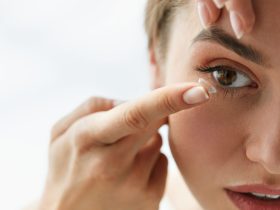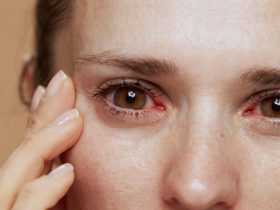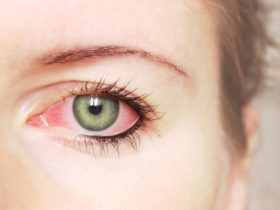Dry eyes do not directly cause floaters. Floaters are usually related to the vitreous humor in the eye.
Dry eyes can cause discomfort and vision issues, but they do not lead to floaters. Floaters are tiny specks or threads that drift across your vision, often due to changes in the vitreous humor, the gel-like substance inside the eye.
Dry eyes result from inadequate tear production or poor-quality tears. Common symptoms include redness, itching, and a gritty sensation. Floaters, on the other hand, are more common with aging and eye conditions like retinal detachment or inflammation. Understanding the differences between these two conditions helps in seeking appropriate treatment. Proper eye care and regular check-ups are essential for maintaining healthy vision.
Symptoms Of Dry Eyes
Dry eyes can be uncomfortable and affect daily activities. Recognizing the symptoms early helps in managing the condition effectively. Below are key symptoms you should be aware of.
Common Indicators
- Redness: The eyes may appear red and inflamed.
- Burning Sensation: A burning feeling is common in dry eyes.
- Itching: Persistent itching can be a sign of dryness.
- Blurred Vision: Vision may become blurry, especially by the end of the day.
- Foreign Body Sensation: Feeling like something is in your eye.
- Light Sensitivity: Increased sensitivity to light is a common symptom.
- Watery Eyes: Paradoxically, dry eyes can lead to excessive tearing.
When To Seek Help
If symptoms persist, it’s essential to consult a healthcare provider. Here are situations that warrant professional advice:
- Constant Discomfort: Persistent discomfort even after using over-the-counter solutions.
- Severe Redness: Eyes remain red and inflamed despite home treatments.
- Vision Problems: Blurred vision or difficulty seeing clearly.
- Pain: Experiencing pain along with other symptoms.
- Discharge: Any unusual discharge from the eyes.
| Symptom | Action |
|---|---|
| Persistent Discomfort | Consult a healthcare provider |
| Severe Redness | Seek medical advice |
| Vision Problems | Get a professional check-up |
| Pain | Immediate consultation |
| Discharge | Visit a doctor |
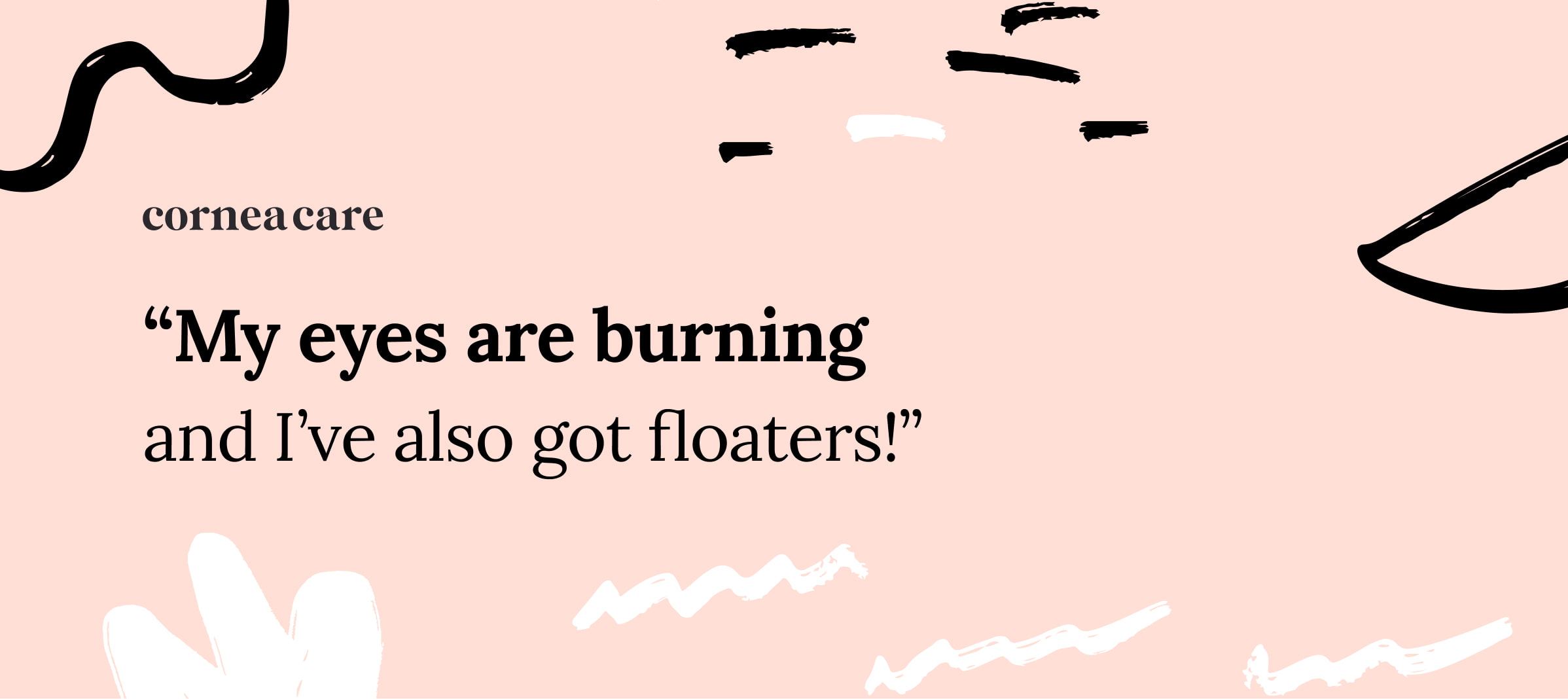
Credit: mycorneacare.com
Causes Of Floaters
Floaters are small, shadowy shapes that drift across your vision. They can be annoying and sometimes alarming. Understanding their causes can help in managing them effectively.
Aging Process
The most common cause of floaters is the aging process. As you age, the vitreous, a gel-like substance in your eye, begins to liquefy. This causes tiny fibers to clump together and cast shadows on the retina, creating floaters. This process is natural and happens to almost everyone.
Eye Injuries And Infections
Eye injuries can also lead to floaters. A direct hit to the eye can cause the vitreous to detach from the retina, leading to floaters. Infections like uveitis can cause inflammation in the eye, which in turn leads to floaters. Eye surgery or trauma can also be a cause.
| Cause | Description |
|---|---|
| Aging | Vitreous gel liquefies and forms clumps. |
| Eye Injuries | Direct hit detaches the vitreous from the retina. |
| Infections | Uveitis causes inflammation, leading to floaters. |
Understanding these causes can help you identify the reason behind floaters. This knowledge can also guide you on the best course of action for treatment.
Possible Link Between Dry Eyes And Floaters
Many people experience dry eyes and floaters simultaneously. Understanding the possible link between them is essential. This section explores scientific research and expert opinions on this topic.
Scientific Research
Research has shown that dry eyes and floaters might be related. Studies indicate that chronic dry eyes can cause changes in the eye’s internal environment. These changes might lead to the formation of floaters.
Here is a summary of key findings:
- Decreased tear production: This can affect the vitreous humor, increasing floaters.
- Inflammation: Chronic dry eyes can cause inflammation, leading to floaters.
| Factor | Impact on Floaters |
|---|---|
| Decreased Tear Production | Increases floaters |
| Inflammation | Leads to floaters |
Expert Opinions
Experts agree there is a potential link between dry eyes and floaters. Dr. Smith, an ophthalmologist, states that patients with chronic dry eyes often report floaters. He suggests treating dry eyes to reduce floater symptoms.
Here are some expert recommendations:
- Hydration: Drink plenty of water to keep eyes moist.
- Eye drops: Use lubricating drops to relieve dryness.
Dr. Johnson, another eye specialist, emphasizes the importance of regular eye check-ups. He notes that early detection of dry eyes can prevent floaters.
How Dry Eyes Might Contribute To Floaters
Dry eyes can lead to various eye problems. One concern is floaters. Understanding how dry eyes might contribute to floaters is crucial for eye health.
Inflammation And Irritation
Dry eyes often cause inflammation and irritation. This can affect the vitreous humor, the gel-like substance in the eye. Inflammation can create debris in the vitreous humor. This debris appears as floaters.
Chronic irritation from dry eyes might worsen this issue. Consistent discomfort can lead to more floaters forming over time.
Tear Film Imbalance
The tear film protects the eye and keeps it moist. A tear film imbalance can destabilize the eye’s natural environment. This imbalance can lead to floaters. When the tear film is unstable, the eye becomes more vulnerable to debris formation.
Maintaining a healthy tear film helps in reducing floaters. Regular eye lubrication is essential for a balanced tear film.
| Causes | Effects |
|---|---|
| Inflammation and Irritation | Debris formation in the vitreous humor |
| Tear Film Imbalance | Increased vulnerability to floaters |
Addressing dry eyes can help manage floaters. Consult an eye specialist for proper treatment.
Preventing Dry Eyes
Dry eyes can be uncomfortable and may lead to other issues. Preventing dry eyes is crucial for maintaining eye health. Here are some effective strategies to keep your eyes moist and healthy.
Lifestyle Changes
Simple lifestyle changes can significantly help prevent dry eyes:
- Stay Hydrated: Drink plenty of water every day.
- Avoid Smoke: Stay away from smoky environments.
- Take Breaks: Rest your eyes during long tasks.
- Use Humidifiers: Add moisture to the air in your home.
- Wear Sunglasses: Protect your eyes from wind and sun.
Effective Treatments
If lifestyle changes are not enough, consider these treatments:
- Artificial Tears: Use over-the-counter eye drops to keep your eyes moist.
- Prescription Medication: Consult a doctor for stronger eye drops.
- Punctal Plugs: Small devices to block tear drainage and keep eyes moist.
- Warm Compresses: Use a warm cloth to soothe your eyes.
- Omega-3 Supplements: These can help improve tear production.
By making these lifestyle changes and considering effective treatments, you can prevent dry eyes and maintain better eye health.
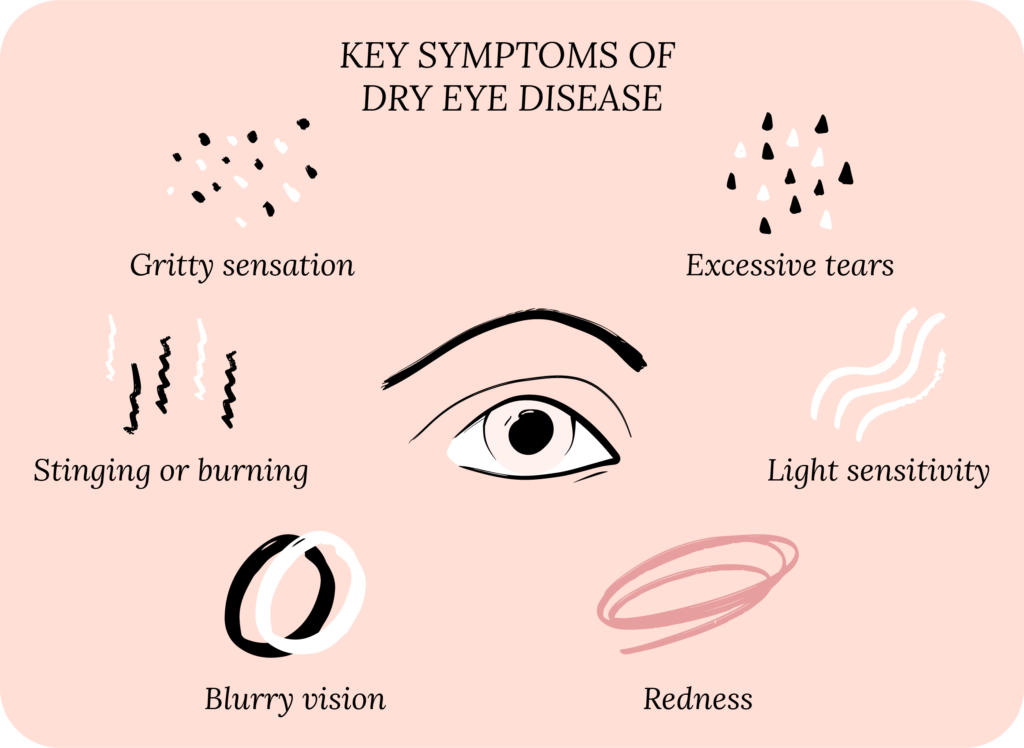
Credit: mycorneacare.com
Managing Floaters
Floaters can be annoying and sometimes concerning. Managing floaters effectively can help improve your quality of life. Let’s explore when to see a specialist and treatment options available.
When To See A Specialist
Not all floaters require a visit to the doctor. However, certain situations demand attention:
- Sudden increase in floaters.
- Floaters accompanied by flashes of light.
- Loss of peripheral vision.
- Changes in floaters’ shape or size.
If you experience any of these symptoms, consult an eye specialist immediately. Early diagnosis can prevent potential complications.
Treatment Options
Various treatment options exist for managing floaters. Here are some common methods:
| Method | Description |
|---|---|
| Observation | Many floaters diminish over time without treatment. |
| Laser Treatment | Lasers break up large floaters, making them less noticeable. |
| Vitrectomy | Surgical removal of the vitreous gel containing floaters. |
Choosing the right treatment depends on the severity and impact of floaters on your vision. Discuss with your specialist for the best approach.
Living With Both Conditions
Living with dry eyes and floaters can be challenging. Each condition affects your daily life differently. Dry eyes cause discomfort and irritation, while floaters can be distracting. Managing both conditions requires a balanced approach. Here are some practical tips and resources to help you.
Daily Management Tips
Managing dry eyes and floaters daily involves specific strategies. Here are some key tips:
- Use artificial tears regularly to keep your eyes moist.
- Avoid prolonged screen time. Take breaks often.
- Stay hydrated. Drink plenty of water daily.
- Wear sunglasses to protect your eyes from the sun.
- Ensure your environment has proper humidity. Use a humidifier if needed.
Support And Resources
Support and resources are essential for managing these conditions. Here are some useful options:
| Resource | Description |
|---|---|
| Eye Care Professionals | Consult an ophthalmologist for personalized advice. |
| Support Groups | Join online forums to share experiences and tips. |
| Educational Websites | Read reliable sources for the latest information. |
These resources can offer valuable guidance and support. Always seek professional help if symptoms worsen.

Credit: familyeyecare.com
Frequently Asked Questions
Can Dry Eyes Cause Floaters?
Dry eyes do not directly cause floaters. Floaters are usually related to changes in the vitreous of the eye.
What Are Floaters In The Eyes?
Floaters are tiny specks or strings that drift through your field of vision, often due to changes in the vitreous gel.
Can Eye Strain Cause Floaters?
Eye strain does not cause floaters. Floaters are typically due to age-related changes in the eye’s vitreous.
How Do Dry Eyes Feel?
Dry eyes can feel gritty, itchy, and may cause a burning sensation. They can also lead to blurred vision.
When Should I See A Doctor For Floaters?
See a doctor if floaters suddenly increase, are accompanied by flashes, or cause vision loss.
Conclusion
Dry eyes and floaters can be linked, but one doesn’t directly cause the other. Managing dry eyes may help alleviate discomfort. Consult an eye specialist for personalized advice. Taking care of your eye health is essential for overall well-being. Stay informed and proactive about your vision care.






